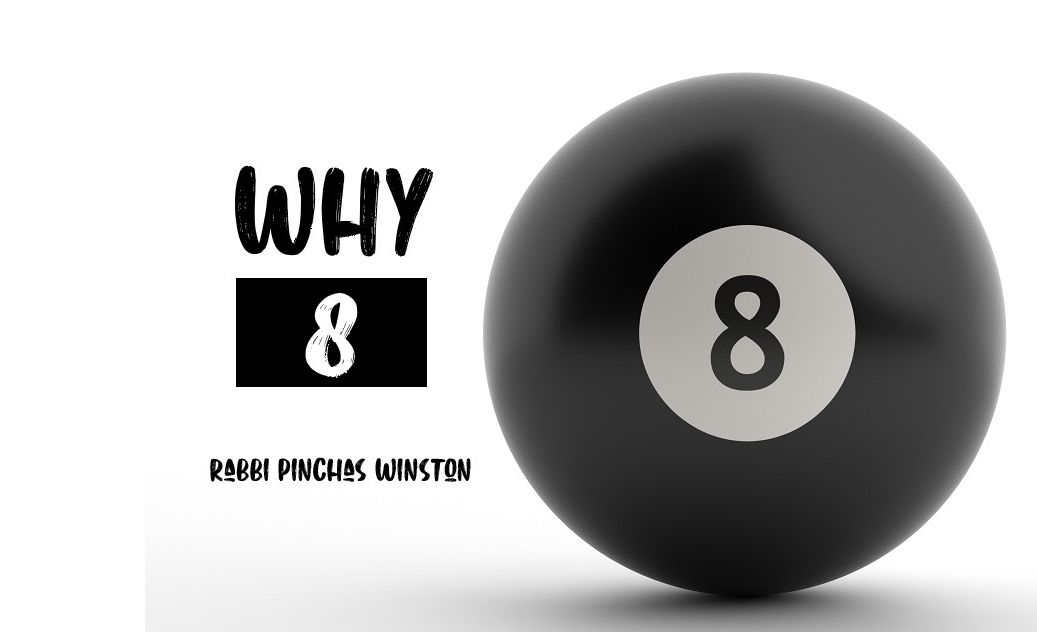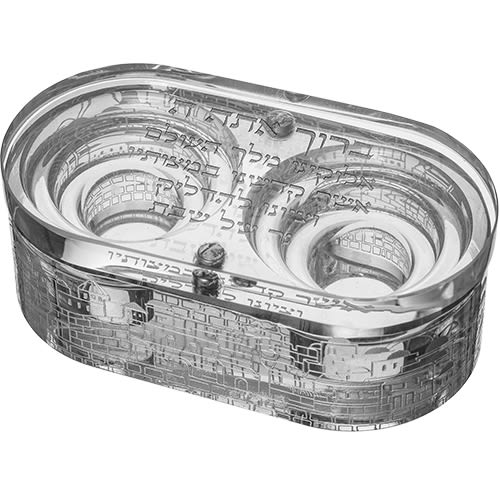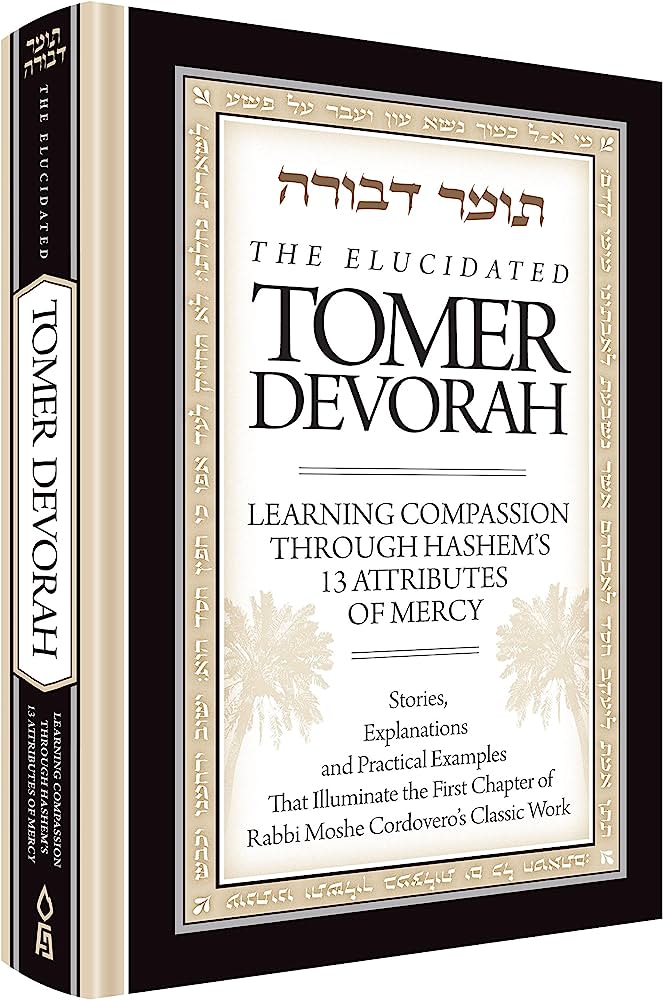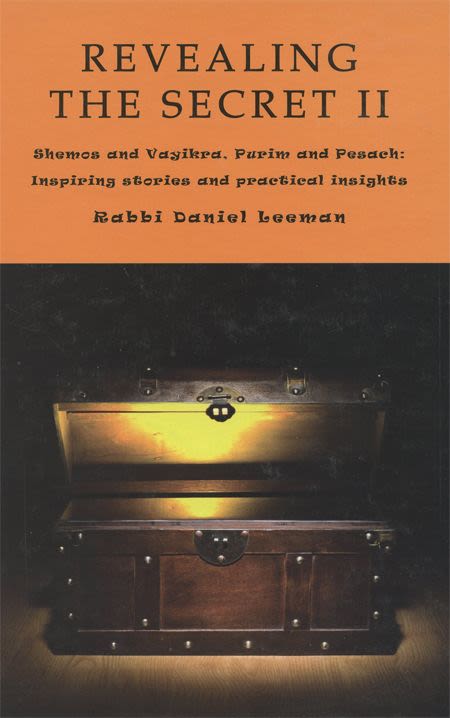
Behar: Shmittah Revisited
Like Shabbat, the shmittah year is a reminder that G-d created the universe in six days and rested on the seventh, that all produce is from Hashem, and that our mission is to bring spirituality into the material world.

FRIDAY NIGHT:
ד ובַשָּׁנָ֣ה הַשְּׁבִיעִ֗ת שַׁבַּ֤ת שַׁבָּתוֹן֙ יִֽהְיֶ֣ה לָאָ֔רֶץ שַׁבָּ֖ת לַֽיהֹוָ֑ה שָֽׂדְךָ֙ לֹ֣א תִזְרָ֔ע וְכַרְמְךָ֖ לֹ֥א תִזְמֹֽר:
But the seventh year shall be a complete rest for the land, a Shabbos for G-d; your field you shall not sow and your vineyard you shall not prune. (Vayikra 25:4)
With this week’s parshah, we return to the concept of the shmittah year, the year that the land of Eretz Yisroel is to remain fallow, meaning that the Jewish people are not allowed to cultivate it for an entire year (and a bit longer). Even though the Torah mitzvah does not apply when the Temple is not standing, the rabbis instituted that the mitzvah should be kept as if it is still in effect today.
Like Shabbat itself, the shmittah year is a reminder that G-d created the universe in six days and rested on the seventh. And, even though the weekly Shabbat is a more constant reminder of this fact, it is also only a one-day reminder of this fact, whereas the shmittah year lasts for an entire year, forcing a long term, though still not permanent, change of life pattern.
Furthermore, after seven complete shmittah cycles (49 years), in the fiftieth year, there is the Yovel year when lands (inside Eretz Yisroel) return to their original owners, and Jewish servants are let free. According to the Sefer HaChinuch, this is to make sure that we recall, at least once every fifty years, that land and freedom are gifts from G-d, and ownership of anything belongs to whom G-d wills it.
The Talmud writes:
From where do we learn that we are to add from the profane to the holy? As it says in the Brisa: “From plowing and harvesting you shall rest . . .” (Shemot 34:21). Rebbe Akiva says, “It does not need to mention plowing and harvesting with respect to shvi’it (“Seventh,” i.e., the shmittah year), because it already says, “your field you shall not sow” (Vayikra 25:4). Rather, [it is referring to] plowing just prior to shvi’it (Rashi: Don’t plow a field of trees just in advance of shvi’it to help it [grow] in shvi’it.), and harvesting of shvi’it [produce] that goes into motzei shvi’it (Rashi: For example, wheat that grew a third in shvi’it you should treat like [produce of] shvi’it [even] in the eighth [year].). (Rosh Hashanah 9a)
In other words, according to Rebbe Akiva, the pasuk from Shemot that starts off talking about resting on Shabbat –
:יב הִשָּׁ֣מֶר לְךָ֗ פֶּן־תִּכְרֹ֤ת בְּרִית֙ לְיוֹשֵׁ֣ב הָאָ֔רֶץ אֲשֶׁ֥ר אַתָּ֖ה בָּ֣א עָלֶ֑יהָ פֶּן־יִֽהְיֶ֥ה לְמוֹקֵ֖שׁ בְּקִרְבֶּֽךָ
Six days you shall work and on the seventh day you shall rest; from plowing and harvesting you shall rest. (Shemot 34:21)
ends by referring to resting in the shmittah year, as Rashi explains:
Why does it single out plowing and harvesting [from 39 activities forbidden each Shabbat, as if the other 37 are permissible]? Therefore, [because of this anomaly] some of our rabbis say that this plowing and harvesting refers to plowing erev shvi’it going into shvi’it, and harvesting of shvi’it going out to motzei shvi’it, to teach that we add from the profane on to the holy. (Rashi, Shemot 34:21)
The only question is, why mix the two matters together into one pasuk? Surely the Torah was not merely looking for a way to save on parchment, as Rashi further explains:
The lesson is: Six days you shall work and on the seventh day you shall rest. However, regarding what I have permitted you during the six days, there is a year when plowing and harvesting are forbidden [even then], and we are not referring to plowing and harvesting in the seventh year, because it already says, “your field you shall not sow” (Vayikra 25:4).
That is, plowing at the end of the sixth year and harvesting in the eighth year what grew a third in the shmittah year. And, as a result of this, the holiness of the seventh year extends back into the sixth year and also into the eighth year, adding holiness to the profane.
However, though the Talmud and Rashi cease to compare the Shabbat and shmittah year past this, perhaps there is room to learn something about Shabbat from the shmittah year, as we shall now discuss, b’ezrat Hashem.
* * *
SHABBAT DAY:
יט וְנָֽתְנָ֤ה הָאָ֨רֶץ֙ פִּרְיָ֔הּ וַֽאֲכַלְתֶּ֖ם לָשׂ֑בַע וִֽישַׁבְתֶּ֥ם לָבֶ֖טַח עָלֶֽיהָ
The land will give its fruit and you will eat your fill . . . (Vayikra 25:19)
Unlike the shmittah year, the day of Shabbat has little connection to the rest of its cycle. Six days we “work,” and think little of the Shabbat that just passed or of the one coming up, except in terms of having to clean up from the previous Shabbat and prepare for the upcoming one.
The shmittah cycle is different. The shmittah consciousness is not only for the seventh year, or even just a little ahead or after it. Rather, it lasts the entire seven years, for there are special laws governing the produce of the six years in between the shmittah years.
For example, there is the ongoing obligation to tithe one’s produce. From the harvested produce, one takes “T’rumah Gedolah” – Large Heave Offering – which, in Temple times, would have been given to the Kohanim. The Torah only prescribes a minimal amount, though the rabbis once fixed it at one-fiftieth of the harvested crop.
From the remainder, a tenth was taken –Ma’aser Rishon – and given to the Levi in Temple times. After that, ten percent of the ten percent – a hundredth, called “T’rumat Ma’aser” – was also given to the kohen in Temple times. However, today, like T’rumah Gedolah, they can only be burned or left to decay before being disposed of since the Kohanim cannot at this time achieve the sufficient level of spiritual purity prescribed by the Torah to consume them.
However, even after all of this tithing, we are not yet finished, and what we would have to do next would depend upon which year of the six we were in.
The six years preceding the shmittah year are divided into two groups of three. Produce grown in the first two years of each group of three years – the first and second years, and the fourth and fifth years – are subject to an additional tithe called “Ma’aser Sheni” – “Second Tenth.” This was an additional ten percent from the remaining produce that, during Temple times, could only have been eaten in the Old City of Jerusalem, or redeemed for its value, the money of which had to be used to purchase other food to be eaten there. Today, we can only redeem Ma’aser Sheni, and eventually dispose of the Kohen in a halachic manner.
However, in the third and sixth year of the shmittah cycle (and some produce of the shmittah year as well), this latter ten percent of the remaining produce instead becomes “Ma’aser Ani” – “Poor Man’s Tithe” – which, as it sounds, was produce left over for the poor to take for their own well-being. It was one of the ways the Torah distributed the wealth that, belongs to God. It was also a way of making sure than the poor and downtrodden don’t starve to death.
There are other laws regarding the produce of Eretz Yisroel necessary to understand, either of a Torah origin or of a rabbinical origin, before one can eat the bounty of Eretz Yisroel with Heaven’s approval. However, the only point we are making now is that the shmittah cycle is exactly that: a complete cycle. Thus, because of its ongoing laws that are directly connected to the shmittah year itself, one is always involved in the concept of shmittah. And, as we will now discuss, G-d willing, this is something that needs to be applied to the weekly Shabbat as well.
* * *
SEUDAH SHLISHIT:
יט וְנָֽתְנָ֤ה הָאָ֨רֶץ֙ פִּרְיָ֔הּ וַֽאֲכַלְתֶּ֖ם לָשׂ֑בַע וִֽישַׁבְתֶּ֥ם לָבֶ֖טַח עָלֶֽיהָ
“ . . . You will dwell securely upon it.” (Vayikra 25:19)
This pasuk, though it refers to the result of keeping the laws of shmittah, could just as easily refer to the result of observing all the laws of Shabbat. Shabbat is not just a day of rest, it is a day of security, just as the shmittah year teaches us how to live securely.
Actually, Shabbat and shmittah represent the opposite of Amalek, whose very name totals the numerical value of the Hebrew word ספק, “suffek,” which means “doubt.” Thus, the Talmud writes:
Rav Yehuda said in the name of Rav: Had the Jewish people only kept the first Shabbat, no nation or language could ever have had any control over them, as it says, “It happened that on the seventh day some of the people went out to collect [manna],”after which it says, “And Amalek came . . .” (Shabbos 118b)
If God always applies the well-known principle of measure-for-measure, which the Talmud says He does, then Amalek’s attack was the consequence of breaking the first Shabbat. And, if Amalek represents doubt, specifically doubt in God and His Providence, then Shabbat – and shmittah as well – must, by definition mean just the opposite.
To appreciate this point, we have to go back to a fateful moment in Jewish history, one that we don’t give much thought to, though it is really the basis of Jewish history and the underlying message of the matzah each year at the Seder.
You may recall that, after spending 20 years with Lavan building a family, Yaakov Avinu returned home, only to confront his hateful brother, Eisav, along the way. After the formalities were finished, the Midrash says, Eisav acknowledged that there might be more to life than the pleasures of this physical world, and sought to invest a bit in the World-to-Come.
As a result, the Midrash says, Eisav offered Yaakov a piece of the action, in exchange for a portion in the World-to-Come. However, Yaakov, a man with unshakeable trust in God and little desire for the trappings of this physical and temporal reality, rejected Eisav’s offer completely. With no deal in sight, both Yaakov and Eisav went their separate ways -forever.
However, the rabbis explain, we have to appreciate just what took place at that fateful moment. Was the physical world even Eisav’s to bargain away? The answer is, yes – Eisav was in a position to make such a deal, as was Yaakov to accept such a deal, except that the latter didn’t want to. Instead, Yaakov willingly and lovingly handed over the rest of human history and its rewards, at least until Mashiach Ben David comes, may that be VERY soon, to Eisav.
What exactly does this mean? It means that the Jewish people really have no portion in this world, but the entire portion of the World-to-Come, less that which will be given to the righteous gentiles. When Yaakov rejected Eisav’s offer to be a partner in this world, he rejected the opportunity to be able to work for a living, and function according to the laws of nature, as did Eisav and his descendants.
However, did Yaakov Avinu have much of a choice, especially when the Arizal says that all of our beginnings were supernatural to tell us that we are a supernatural people that should not, and really cannot live by the laws of nature? When it comes to spiritual successes, the Jewish people have to make an appropriate effort to succeed. However, when it comes to material success, as natural as we may seem to come by it, it is never really that natural at all.
Then where do we get it from, how does that make us feel more secure, and what does it have to do with this week’s parshah?
* * *
MELAVE MALKAH:
In the third month after Israel left Egypt, they arrived in the Sinai desert. They had traveled from Refidim, had come to the Sinai desert, and camped there, opposite the mountain. Moshe went up to G-d, and G-d called to him from out of the mountain,
:ג וּמשֶׁ֥ה עָלָ֖ה אֶל־הָֽאֱלֹהִ֑ים וַיִּקְרָ֨א אֵלָ֤יו יְהוָֹה֙ מִן־הָהָ֣ר לֵאמֹ֔ר כֹּ֤ה תֹאמַר֙ לְבֵ֣ית יַֽעֲקֹ֔ב וְתַגֵּ֖יד לִבְנֵ֥י יִשְׂרָאֵֽל
:ד אַתֶּ֣ם רְאִיתֶ֔ם אֲשֶׁ֥ר עָשִׂ֖יתִי לְמִצְרָ֑יִם וָֽאֶשָּׂ֤א אֶתְכֶם֙ עַל־כַּנְפֵ֣י נְשָׁרִ֔ים וָֽאָבִ֥א אֶתְכֶ֖ם אֵלָֽי
:ה וְעַתָּ֗ה אִם־שָׁמ֤וֹעַ תִּשְׁמְעוּ֙ בְּקֹלִ֔י וּשְׁמַרְתֶּ֖ם אֶת־בְּרִיתִ֑י וִֽהְיִ֨יתֶם לִ֤י סְגֻלָּה֙ מִכָּל־הָ֣עַמִּ֔ים כִּי־לִ֖י כָּל־הָאָֽרֶץ
:ו וְאַתֶּ֧ם תִּֽהְיוּ־לִ֛י מַמְלֶ֥כֶת כֹּֽהֲנִ֖ים וְג֣וֹי קָד֑וֹשׁ אֵ֚לֶּה הַדְּבָרִ֔ים אֲשֶׁ֥ר תְּדַבֵּ֖ר אֶל־בְּנֵ֥י יִשְׂרָאֵֽל
“Tell the house of Yaakov and the Children of Israel: ‘You have seen what I did to Egypt, and how I bore you on eagles’ wings, and brought you to Myself. If you will obey My voice, and keep My covenant, then you will be unique to Me above all the nations, for all the earth is Mine. You will be a kingdom of priests to Me, A HOLY NATION.’ These are the words to tell Israel.” (Shemot 19:3-6)
For all intents and purposes, this pasuk just reiterates the deal Ya’akov made, or rather, didn’t make with Eisav, his brother. What is the overall message of this paragraph? Though you live in this natural world, you are not really a part of it, so don’t try to be.
Yes, we have done a great job keeping up with the Joneses, or the Schwartzes, or whoever. As a people, time and time again we are able to be just as Greek as the Greeks, just as Spanish as the Spanish, and just as American as the Americans, if not better sometimes. However, this is only true on the outside, which conceals an inner, far more subtle truth: the Greeks will always be better Greeks than us, as will the Spanish be better Spaniards than us, and the Americans will be better Americans than us, because that is the way it is supposed to be.
This truth may hurt some in the short run, but it will be well worth it in the long run, as Ya’akov Avinu understood only too well. No pleasure in this world, no matter how hard we work for it can ever compare, even a little, to the eternal pleasure of the World-to-Come. And THAT is precisely what the shmittah cycle and the Shabbat “cycle” came to teach us about, and remind us about daily, monthly, and yearly.
For, the shmittah cycle says, “Hey, this produce doesn’t belong to you, it belongs to G-d. And just to prove the point, take off all these tithes.”
If you believe that your property is merely being taxed, then you can only be resentful that it is being reduced by people who have little to do with your life. You are not grateful for what remains for you, but upset about what was given to them.
However, if one believes that the produce is truly G-d’s, as a nation of priests ought to believe, then one is not upset about what was taken, but grateful for what was left behind. It is truly a gift, and gifts lead to gratefulness, which in turn leads to love and dependency. This is what the entire shmittah cycle is supposed to foster in the mind and heart of the Jew.
If Shabbat is to achieve the same thing, then like the shmittah year, its holiness has to spread past its boundaries into the profane week. Though the prohibitions do not extend into Friday afternoon (for the most part), or into motzei Shabbat, the holiness must. We must add the holiness of Shabbat to the profane six-day week.
Thus the rabbis, when instituting the recitation of the psalm of the day, introduced it by saying, “This is the first day of week from Shabbat . . .” It is also the reason why the great Hillel, from Sunday onward, kept an eye out for things that would enhance his upcoming Shabbat, purchasing it while saying, “This is for the honor of Shabbat,” a halacha that all of us are expected to keep.
Thus, there is also a tradition to light two Shabbat candles on motzei Shabbat, just like on Friday night, from the Havdalah candle before extinguishing it. The Havdalah candle used to make the distinction between Shabbat and the six working days coming up, contains some of the holiness of Shabbat, which gets passed on to the upcoming week through the two new candles.
It is also why the rabbis have us say “Veyehi Noam” each Motzei Shabbat when the following week contains no Torah holidays, during which work is forbidden. It is another way of adding holy to the profane – the only true reason why G-d grants us the material success that we enjoy.
And, that was the source of Yaakov’s security and it is meant to be the source of ours. The laws of nature are often fickle, and they offer no guarantees about who will succeed and who will fail. That is why, in the natural world, cheating is endemic.
Not so for those who live in the supernatural world meant for the descendants of Yaakov, the number of which has dwindled drastically as the exile continues to its inevitable conclusion. However, redemption lies not in becoming more immersed in the material world, but less immersed in it. It comes not from making one’s Shabbat more profane, but by making one’s week more holy. And when one does, the wonderful by-product of doing so is the sense of serenity and security we will know in full, G-d willing, once Mashiach – finally does arrive – speedily in our time.
***
Pinchas Winston is the author of over 95 books on various topics that deal with current issues from a traditional Jewish perspective. He has also written on the weekly Torah reading since 1993, called “Perceptions”, as well as on current topics and trends affecting Jewish history, past and present. One of his missions is to make the depth and beauty of the more mystical teachings of Torah understandable and accessible to those who can really benefit from them. Visit his website at thirtysix.org.












Tell us what you think!
Thank you for your comment!
It will be published after approval by the Editor.